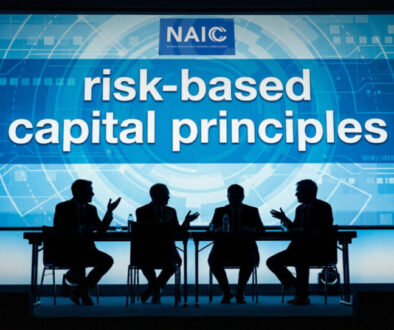Free online tool helps insurers map out AI governance framework

Insurers now have a free resource to help develop their AI governance frameworks thanks to a new online assessment tool offered by data and AI solutions company SAS.
“We’ve created a maturity assessment that can help our customers identify where they are when it comes to their AI governance journey within the organization,” Kristi Boyd, senior trustworthy AI specialist with SAS’ Data Ethics Practice, said.
Boyd noted that an increasing number of companies are beginning to incorporate AI, but a lot of confusion and misunderstanding persists. She said SAS believes in an ethical responsibility to get AI right, and that’s why the assessment tool is provided free of cost.
“We believe that it’s table stakes to do AI responsibly, and that it’s essential for us, as a society, to make sure we get this right. So, we’re not going to charge customers and we currently don’t charge customers for the help involved in making sure that they can use AI responsibly, they have a plan for governance, et cetera,” Boyd said.
She explained that the tool can help insurers gauge whether their AI plan is clear and coherent. But, they can also choose to engage in deeper dialogue with a dedicated SAS team to help develop a customized framework for their needs.
AI strategy is key
In an environment where AI usage is dramatically increasing, Boyd said the strategies and frameworks companies use to implement it make all the difference.
She pointed to studies such as Stanford HAI’s 2025 AI Index Report, which found 78% of businesses reported using AI in 2024 — up from 55% the year before.
Additionally, SAS conducted its own internal research last year and found that of 200 customers in the insurance domain, nearly 90% had plans to use GenAI or were actively investing in GenAI.
“As you talk about governance, it’s important to understand how the AI strategy would tie into the business strategy — not just thinking about AI as the fancy, fun new tool, but what are the actual gains that we’re trying to accomplish? What are the business problems that we’re trying to solve? And that’s really where that kind of oversight strategy piece comes into play,” Boyd noted.
Assessing the AI journey
Insurers can access SAS’ AI assessment tool on its website and complete the tool’s questionnaire to get a sense of where they are on their AI journey. Boyd said the tool provides customized recommendations once the assessment has been completed.
“The assessment is available publicly, so anybody can go in. My suggestion would be that somebody from the leadership team goes in and responds to the 10 questions on the website. Immediately from there, it’ll take maybe 15 seconds or so to generate the custom report to them, providing some feedback and suggestions and identifying where they are on that journey,” she said.
An SAS team is also available if insurers want a more personalized look at the opportunities, unique challenges and tailored solutions that can help them “address that successfully so they can leverage AI technology in a beneficial manner while also mitigating the risks.”
As one example, SAS worked with global insurer PZU Group about two years ago to create a custom innovative, ethical AI governance framework. From that exercise, which Boyd also played a role in, PZU has now begun offering its own framework for use in the insurance industry.
Governance and compliance still apply
While the absence of federal AI regulations have caused some uncertainty even in the insurance sphere, which is regulated at the state level, Boyd emphasized that compliance and governance still need to be taken into consideration.
“I think there’s a misunderstanding sometimes when it comes to AI, especially in the U.S. domains where folks say, ‘Well, there’s not a federal regulation on AI, so it’s a wild, wild west for us.’ That’s not quite accurate,” she said.
She explained that just because a regulation doesn’t explicitly mention AI, that doesn’t mean that AI is excluded from those laws.
“Everything that’s in place right now still needs to be applicable and is applicable legally to the AI technology. The executive order, for example, being rescinded, even though that’s happening on the federal level, still on the state-by-state level, there’s a lot of activity that insurance needs to be aware of and adhere to,” Boyd said.
AI in a high-risk industry
In Boyd’s opinion, the need to get AI right is even more crucial in insurance, which she described as “an industry that can have a very big impact on the well-being of individuals.”
“It’s typically considered a fairly high-risk industry for making sure we get things right, and so having an AI governance strategy helps make sure that any company, insurance advisor, or any individual engaging with insurance or with AI is doing it with intentionality and purpose… Completing the assessment helps you understand where you are in that journey,” she said.
SAS is a global data and AI solutions company founded in 1976 in Cary, North Carolina. It now has clients and partners in a wide variety of fields across the globe. It recently formed an AI Governance Advisory Group to help support companies with AI governance needs.
© Entire contents copyright 2025 by InsuranceNewsNet.com Inc. All rights reserved. No part of this article may be reprinted without the expressed written consent from InsuranceNewsNet.com.
The post Free online tool helps insurers map out AI governance framework appeared first on Insurance News | InsuranceNewsNet.





